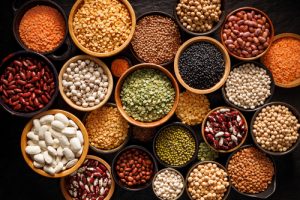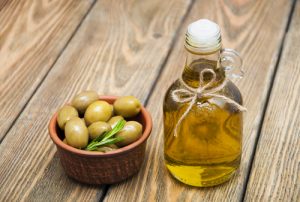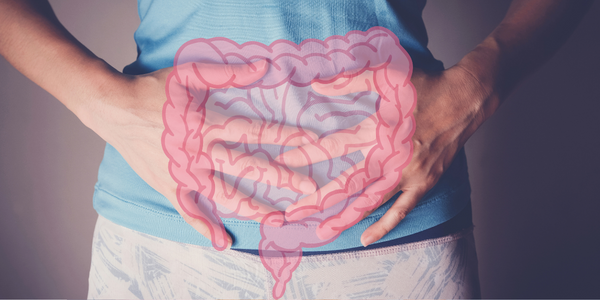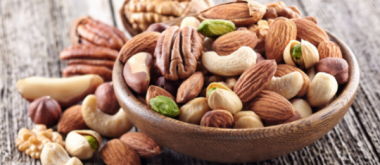Believe it or not, constipation is more than just difficulty passing stool. It can be a severe medical condition that can cause unnecessary discomfort, and in some cases, a variety of health complications such as an increased risk of developing colon cancer and diverticulitis.
As we age, natural changes in the digestive system such as the slowing of the digestive process and increased absorption of water from food waste, can increase the likelihood of constipation more so than when we were younger.
Fortunately, there are plenty of things that you can do to prevent constipation while also enjoying flavorful foods. Firstly, it is important to drink adequate amounts of fluid to ensure the body isn’t dehydrated, which can lead to constipation. In addition, many healthy food options are available for those who need to consume more high-fiber foods daily.
10 of the Best Foods for Constipation
1. Prunes
Prunes, or dried plums, are one of the best healthy foods for treating and preventing constipation and a plus side is that a little goes a long way. Prunes are an excellent fiber source, making them great for preventing the condition. These fruits contain a sugar alcohol called sorbitol which passes through the body undigested, drawing water into the gut and stimulating bowel movements, having a laxative effect. In addition, they are rich in fiber, containing approximately one gram of concentrated fiber per fruit.
Research even indicates that prunes are more effective than popular over-the-counter psyllium fiber options when it comes to combating constipation.
While eating a single prune a day can be enough to work wonders, prunes can also be cooked into various recipes and make an excellent topping for ice cream or a tasty addition to muffins and cookies. Though not as rich in fiber and sorbitol as a raw prune, prune juice, is also a popular option for treating constipation.
2. Beans and Legumes

Examples of beans and legumes include lima beans, peanuts, peas, soybeans, lentils, and black-eyed peas. Adding a can of beans to a soup or stew for flavor and fiber, or including one or both in dinner options as a side dish or added ingredient can be an easy option to incorporate them into the diet.
3. Kiwi
Fruits are another healthy food option, as they contain dietary fiber that keeps the digestive system moving and prevents constipation. In particular, kiwi is a high-fiber option that contains less sugar than other fruit options. In addition to its high fiber content, kiwi also is chock-full of nutrients, vitamins, and minerals and contain a meager amount of fat. Kiwis work to prevent constipation by improving your body’s intestinal health, which helps to create regular bowel movements.
4. Green Vegetables
Spinach, collard greens, brussels sprouts, broccoli and other green vegetables are an excellent source of water and nutrients, such as magnesium and folate, that help support digestive health. They also contain high amounts of fiber, which help with digestion in the intestines.
5. Aloe Vera Gel
A natural laxative, the clear aloe vera gel found within the plant can be blended into smoothies, drank on its own or used in regular cooking to mask the unique flavor and texture. It should be noted that when harvesting aloe vera gel, avoiding the yellow latex is important as it can cause abdominal cramps or lead to diarrhea.
For more about the benefits of Aloe and healthy recipes incorporating the juice, click here.
6. Nuts
Nuts are not only a healthy food, they are a fiber-packed snack that help ease constipation. Almonds, walnuts, cashews, peanuts, and pecans contain beneficial fatty acids that help with digestion and are low in fat, but they have enough sodium to help maintain proper hydration levels in your body. Nuts are also a good source of vitamin E that help with overall health and prevent premature aging.
What’s nice is they are incredibly versatile. Nuts can be added to various recipes, smoothies or eaten as a snack on their own.
7. Olive Oil

8. Whole Grains
Whole grains provide a lot of fiber. These grains are also a great source of iron, calcium, and B vitamins which help to support healthy digestion in the bowels. Whole grains contain complex carbohydrates that are digested slowly, having less impact on the digestive system and aid in keeping the bowels moving regularly. In fact, researchers found whole grain rye bread to be better than wheat bread and laxatives for relieving constipation. It is important to note that any grain refined or altered in some way does not offer the same health benefits as whole grains.
9. Coffee
That’s right, your morning cup of joe may be helping regulate you. Researchers find that coffee stimulates muscle contractions within the colon, improving the ability to pass stool. But don’t start downing multiple cups of java a day just yet, one thing that should be noted is that high intake of caffeine can have a dehydrating effect, which can be counterproductive when it comes to alleviating constipation.
10. Yogurt
A not so unknown benefit of regular yogurt consumption is the benefit it can have on your digestive health. This is due to the active bacterial cultures within yogurt, also known as probiotics, which can balance your gut health and your GI system.
While prunes may be the old standby when it comes to easing constipation, there are a number of helpful options for quick relief and sustainable digestive health long-term as you age.





